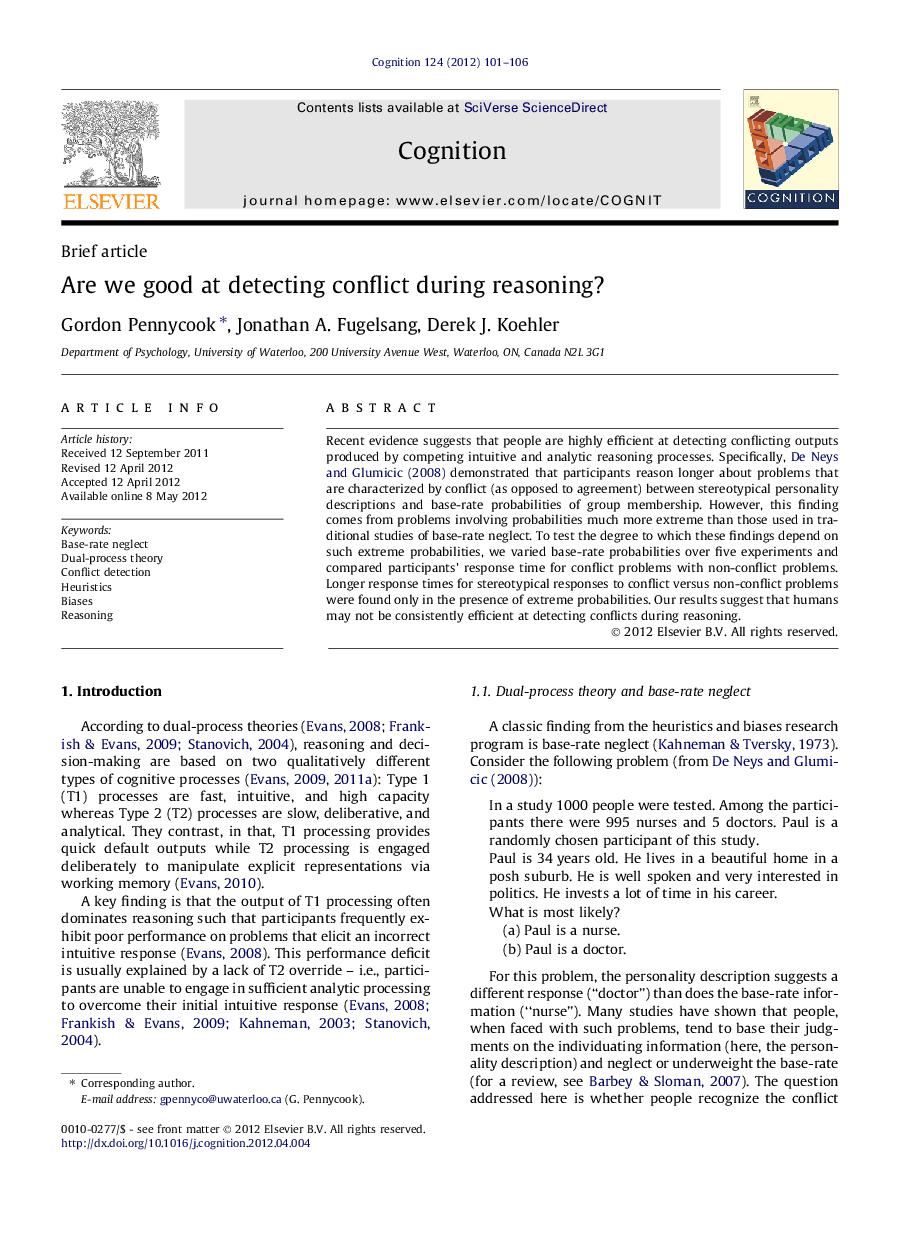| Article ID | Journal | Published Year | Pages | File Type |
|---|---|---|---|---|
| 10457672 | Cognition | 2012 | 6 Pages |
Abstract
Recent evidence suggests that people are highly efficient at detecting conflicting outputs produced by competing intuitive and analytic reasoning processes. Specifically, De Neys and Glumicic (2008) demonstrated that participants reason longer about problems that are characterized by conflict (as opposed to agreement) between stereotypical personality descriptions and base-rate probabilities of group membership. However, this finding comes from problems involving probabilities much more extreme than those used in traditional studies of base-rate neglect. To test the degree to which these findings depend on such extreme probabilities, we varied base-rate probabilities over five experiments and compared participants' response time for conflict problems with non-conflict problems. Longer response times for stereotypical responses to conflict versus non-conflict problems were found only in the presence of extreme probabilities. Our results suggest that humans may not be consistently efficient at detecting conflicts during reasoning.
Related Topics
Life Sciences
Neuroscience
Cognitive Neuroscience
Authors
Gordon Pennycook, Jonathan A. Fugelsang, Derek J. Koehler,
